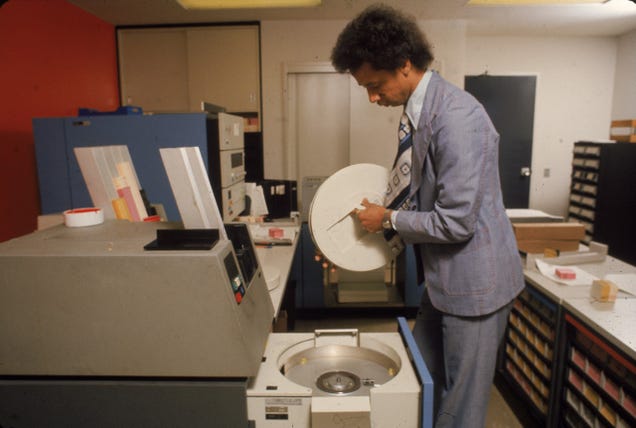
People often think about internet spying as relatively new. But the internet was used for spying before we even called it the internet—and when we look back at news articles from the era, we can’t say we weren’t warned.
As just one more in a long list of examples, take a December 1975 article by Tad Szulc in The Washington Monthly. Szulc explains that this new thing called the ARPANET (the packet-switched precursor to our modern internet) had the potential to be used by intelligence agencies for domestic intelligence purposes.
From the perspective of 2015, it almost reads like the warning of a time traveler who slipped back to 1975:
The most significant thing about ARPANET is that it permits the instant connection of computers of different types, ranging from the huge ILLIAC IV to the commercial-class models produced by IBM and others. Complex switching techniques allowing these computers to “talk to each other” are considered a major technological break-through. The question that goes on haunting civil libertarians is whether ARPANET can be used for domestic intelligence by being hooked into CIA, FBI, military intelligence, White House, or other computer systems.
The American intelligence community has always been at the forefront of networked computing. And we now know that they helped build the precursors to our modern internet.
In 1975 it wasn’t a foregone conclusion that Americans would one day have access to networked computing. Email had only been invented in 1971, and most civilians had no idea what it was. A critical mass of people getting online was still over two decades away. But people looking into tomorrow knew one thing for certain: Networked computing had the potential to be used to keep tabs on everybody in some capacity.
Later in the article, Szulc poses questions about “the next Nixon” and how ARPANET might be used against American citizens:
There is no evidence, however, that ARPANET has been devised with domestic intelligence in mind. ARPA officials say that the network has never been employed for anything except the computerized exchange of military scientific data among the institutions forming ARPANET.
Still, the question lingers: Could the next Nixon order ARPANET to be turned into a police instrument, instantly telling every government agency everything there is to be known about every American citizen whose name has been recorded somewhere?
Yes, yes they could. And they did. So that’s that, I guess. You tried to warn us, time traveling journalist. But nobody would listen. Welcome to the future.
Image: A man replaces a magnetic tape data storage drive in an early model office computer, mid 1970s via Hulton Archive/Getty Images





